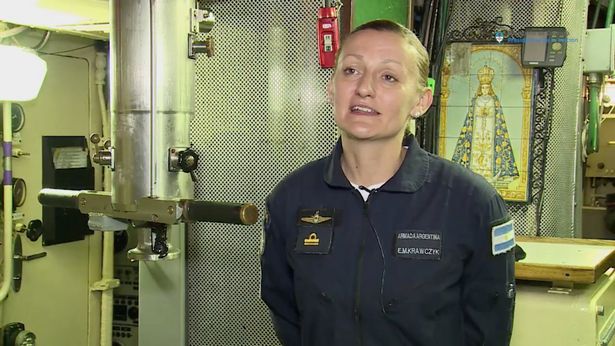The Argentine submarine, ARA San Juan, which disappeared on November 15, 2017 was announced found on November 18, 2018 by the US oceanic survey company Ocean Infinity. It was located several hundred miles from its last expected position, scattered in pieces and with a partially imploded tail, half a mile deep. The last official communications with the vessel indicated that the Captain reported a malfunction with its snorkel which caused the boat to take on water and may have resulted in an onboard fire in the battery compartment. Currently, Argentina is unsure if they will be able to recover the vessel as their navy does not possess the technological capability. Until the submarine is recovered it will probably be hard to determine what happened to it.

‘On the surface’ this tragedy at sea has had the appearance of vast international goodwill and cooperation to find the missing submarine. In addition to the resources of Argentina, the navies of the UK, the US, and even Russia provided resources to support the search. But specifically despite the apparent goodwill by Russia around the tragedy, it has left me wondering if Russia exploited the crisis with a disinformation campaign, or even had a role in the disappearance of the ship itself. Perhaps with the goal of salvaging communications or other intelligence from the craft (and drawing some possible parallels with the 2010 Smolensk crash and associated intelligence coup for Russia).
Some Background on Russian Involvement in the Falklands War of 1982
First, I think it is important to put the modern naval military history of Argentina, the UK, the US, and Russia in perspective, as it relates to the history of the 1982 Falklands War. In that war, Argentina fought against the UK and lost. During the conflict, the KGB apparently provided intelligence to Argentina which was used to sink UK ships (see HMS Sheffield / HMS Coventry); and the US provided the UK intelligence which was used to sink Argentine ships (see ARA General Belgrano). (A very good overview of psychological operations from the Falklands War can be found here.)
Modern Russian historians close to the Putin government have suggested that the reason the Soviets supported the anti-Communist Argentine government in the 1982 war was via the mantra of ‘the enemy of my enemy is my friend’. Sergei Brilev (who is deputy director of Russian state-owned news agency Rossiya RTR) said in his 2010 book that ‘in coming years the Falklands conflict will also be remembered as “the first armed incident of a major dispute in Antarctica” and that in “a couple of decades we’ll be facing a situation where the traditional sources of minerals and energy will be exhausted and the last great important reserves are in the Antarctic continent: that is why the Falklands, as I see it, will be considered a first major conflict over Antarctica”. The Falklands after all “are the natural and privileged gate to Antarctica”’. (This sounds quite similar to Russian North Atlantic / Arctic doctrine as well.)
Russian Support for the ARA San Juan Search
Vladimir Putin first offered official support to Argentina’s President Mauricio Macri on November 22, 2017. It was announced by RT the next day that the ‘Yantar’ ocean survey vessel would participate; and it arrived in the area on December 5, 2017 according to Russia’s TASS. (The US recovery attempt seems to have wrapped up in late December 2017 and the Russian activities ceased in April 2018.)
Yantar, which houses multiple onboard submersibles and a large interior ‘hangar’, is sometimes viewed as a ‘spy ship’ and had been used to salvage components of Russian jets previously which crashed in the Syrian Civil War. It has also ‘spied’ directly on US military installations and been a source of discomfort in UK territorial waters as well. Yantar’s capabilities have featured heavily in speculation about Russian intentions to disrupt undersea cable communications; which could effectively cripple large swathes of Western society (as well as effective military operations).
Anti-British Conspiracy Theories and Social Discord ‘Dredging Up’ the Falklands War Past
On November 25, 2017; Sputnik News published a Spanish language story quoting a ‘Captain Vasili Dandikin’ which alleged that the submarine had quite likely hit an extant naval mine which had been left by the UK during the Falklands War. The problem was, that the UK did not use mines in the war.
Around the time of the sub’s disappearance, and the appearance of the Sputnik-based conspiracy theories, it was reported that family members of the missing sailors received mysterious and conspiratorial WhatsApp messages supposedly from the crew members – with one family member saying of them: “It was a strange message in which he told us a British helicopter and a Chilean ship had been chasing them” and that the ARA San Juan had been ‘close to the Falkland Islands’. (Which seems to have not been true based on the final determination of the ships’ resting place.)
Ultimately, the family of the submariners have been very vocal in their criticism of the Argentine government – but as the WhatsApp messages show, ‘someone’ may be attempting to stir them up.
(It may be pertinent that stories about failed satellite calls from the submarine also appeared in the press but were quickly discounted. )
Two far-left Argentine politicians were seemingly implicated in trying to stir up public anger at the UK over the crisis. When it was announced that the UK would be assisting in the attempts to recover ARA San Juan, Gabriel Solano (a.k.a. ‘Comrade Solano’), a former footballer/soccer player who leads up the Argentine Workers Party referred in tweets to the UK as “pirates” and “occupation troops in Argentine territory” who were “responsible for war crimes, like the sinking of the General Belgrano”. (Solano has been specifically also involved in anti-Israel sentiment leading to the cancellation of international soccer matches due to Israel’s policies and perceived occupation of Palestine.)
Similarly to Solano, journalism professor Fernando Esteche – leader of the Argentinian far left ‘Quebracho party’ called the would-be UK rescuers “pirates” and “occupiers”. Esteche has actually been sentenced and jailed for his anti-Israel stances and for threatening a Jewish community demonstration outside Iran’s Argentinian embassy in 2006. Esteche was claimed to emulate pro-Hezbollah positions and was protesting the “massacre against the Palestinians”. Esteche has traveled ‘frequently’ to Iran, and been a ‘fervent’ supporter of former Argentine President Cristina Kirchner , who was close to Hugo Chavez and had fostered diplomatic connections between Argentina and authoritarian regimes abroad. Esteche was even accused directly of being involved in a Kirchner-backed plot to cover up Iranian responsibility for the ‘AMIA/DAIA bombing’ which had targeted Jews and been coordinated at a mosque known for anti-Israeli and pro-Iranian demonstrations.
(It may be interesting to point out here that there are other potential examples of Russian disinformation related to naval activity in Central and South American waters which was seemingly coordinated with the Hugo Chavez government in Venezuela and blamed the US Navy for the 2010 earthquake in Haiti.)

More Questions than Answers
Within just several days of Putin’s direct offer of support to Argentine President Mauricio Macri, it seems indisputable that Russian state propaganda organs began to spout disinformation and conspiracy theory which would seem intended to create Argentinian and Spanish-speaking animosity towards the British in a revisitation of a provably false claim about the Falklands War. Members of the crew’s family received similar conspiratorial messages targeting the UK and Argentina’s neighbor Chile over WhatsApp, indicating coordinates for the ship and a relation to the Falklands which would seem disproven by the actual location of the determined wreckage. (In addition to the potential of major security holes, WhatsApp has factored heavily in disinformation campaigns in South America of late.)
The early 1980s cooperation between Soviet intelligence and Argentinian anti-Communists in order to attack the UK Navy was seen as justified as employing the ‘enemy of my enemy’ doctrine. Today, when Russia ostensibly has a right wing government, it may be perhaps apparent that those who are carrying on the ‘informational legacy’ of the Falklands War in Argentina would seem to be of a decidedly leftist and anti-Israeli background. Perhaps this is another example of a similar ‘enemy of my enemy’ doctrine employed by Russia and its proxies like Iran, but tailored to modern circumstances.
Beyond this, it seems objective that the Russians sent what is generally considered a ‘spy ship’ to assist in the ARA San Juan recovery effort. The ship had previously been used to recover sensitive equipment from jets which had crashed at sea. (The Yantar ship left the search area during the mission timeframe and then returned.)
But as much as I am confident ‘nation state’ disinformation is at play, I am left with a lot of questions about what this may suggest.
Would Russia have benefitted by salvaging any of the equipment from the ship and not reporting it to others? Was the Yantar or any other Russian ship within range of the final discovered location at any time during the search effort?
How similar might Russia’s subsequent commitment to strategic dialogue with Mauricio Macri’s government in the wake of the 2017 crisis be with Russia’s entrance into now-controversial security discussions with Donald Tusk’s government following the 2010 Smolensk disaster?
Did Russia simply take advantage of the situation with the ARA San Juan to attempt to churn disinformation to create a more favorable information environment for itself? Or did it have a more direct role in the disappearance of the sub which was synergistic with the disinformation?
Was it a Russian (or Iranian-linked) cyber activity which sent the WhatsApp messages to the crew member families?
How might the Russian idea of the 1982 Falklands War as the “first major dispute in Antarctica” factor into the ARA San Juan crisis? What about the scope of Russian maritime aggression seen for example in the Arctic and North Atlantic over energy resources — is this a portent of a similar strategy?
